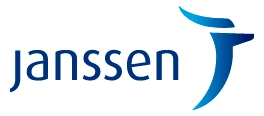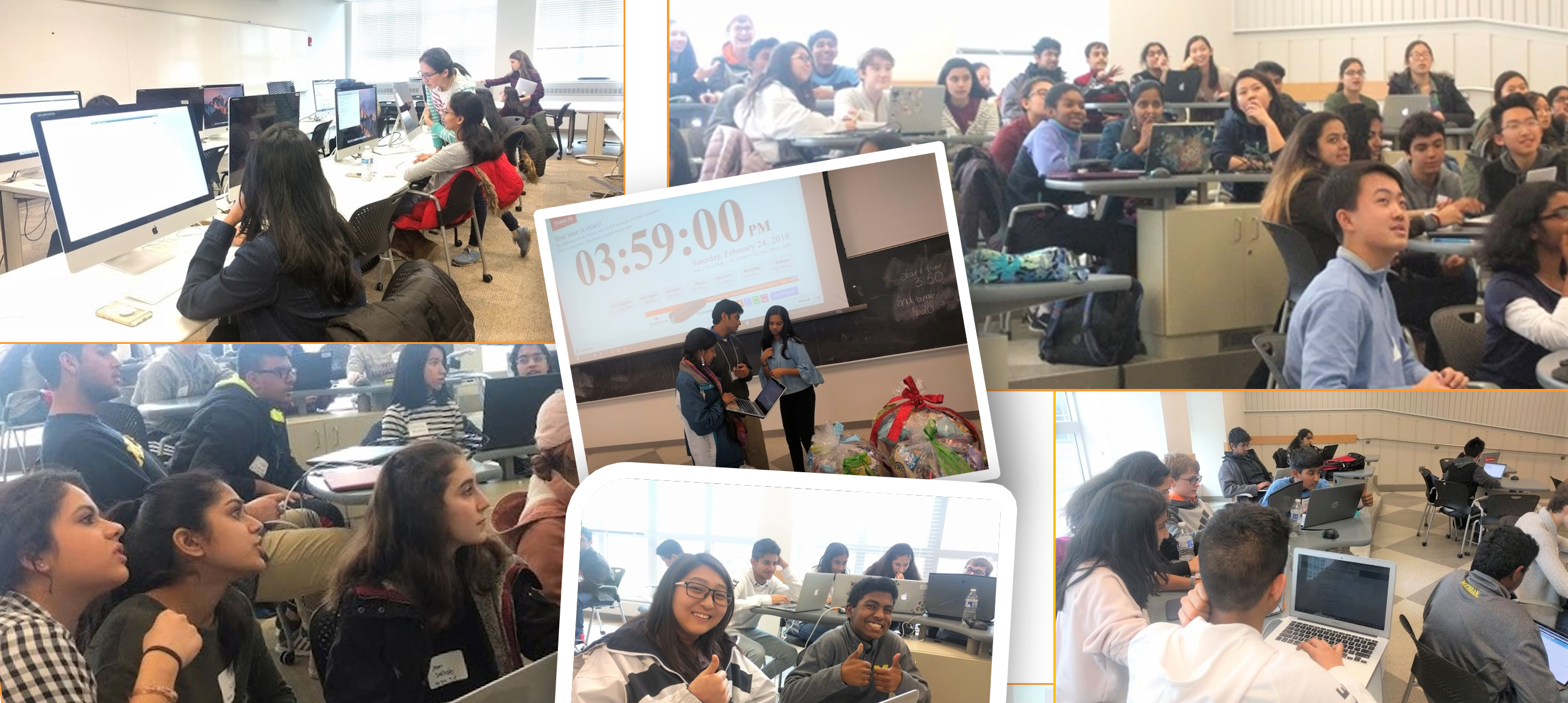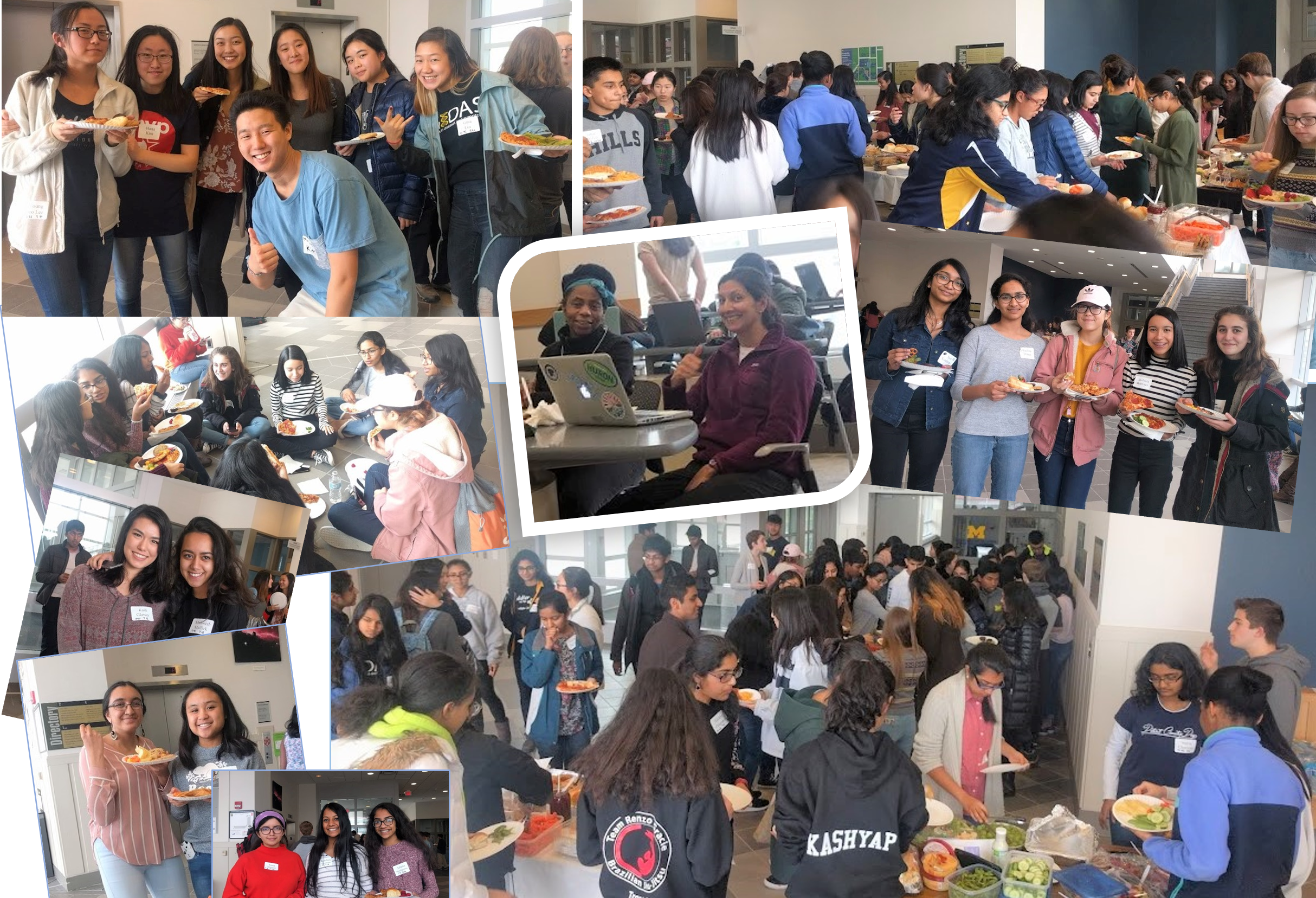The 13th Annual Genes and Health Contest
UM GIDAS
Overview
COMPETITORS: High school students or GIDAS members who love solving challenging problems at the intersection of computers, biology, engineering, and medicine.
DATE: Saturday, January 25, 2025
TIME: 2:00 – 5:30 pm Eastern Time (11 am – 2:30 pm Pacific Time)
LOCATION: Online
Detailed Contest Information:
The 2025 Genes and Health Contest is an online contest held by miRcore and UM GIDAS focused on genetics and biocomputational processes. Anyone is welcome to participate in the contest and can sign up here by Monday, 1/20/2025 at 11:59 pm (EST) to be eligible to compete for a variety of contest awards!
The 2025 Genes and Health Contest will be held on Zoom from 2:00-5:30 pm (EST) on Saturday, 1/25/2025. The Zoom link will be sent to those that sign up. The contest is broken up into two parts: the conceptual test and the computational test. The conceptual test will consist of around 40 multiple choice questions, while the computational test will consist of a mixture of multiple choice and free-response. The topics covered in each test are listed below in the “Contest Topics” section of this document, with some study resources as well. All participants will get 40 minutes to complete each of the two tests, with 15 minute breaks in between. The First Section (Conceptual Test) will be CLOSED BOOK (you will NOT be allowed to use notes/resources). The Second Section (Computational Test) will be open-internet.
Please scroll down for Schedule, Rules, and Topics.
REGISTRATION DEADLINE: Monday, January 20, 2025 @ 11:59 PM Eastern Time
FEE: Free
Suggested Donation: $10 or more
– check payable to “miRcore”
and send it to 1100 North Main St. Ste 214, Ann Arbor, MI 48104
or
SUBJECTS:
Genes and Neurodegenerative Diseases
STUDY MATERIALS:
GENERAL CONTEST FORMAT:
Session 1: Conceptual test (multiple choice)*
Session 2: Computational test (multiple choice + free response)*
Session 3: Random short presentations
*each with 50% weight to Overall Awards and Honorable Mentions (UTR, Intron)
PURPOSE: To familiarize students with functional genomics, help them understand diseases in terms of genes and environmental networks, and participate in computational biology research.
AWARDS: There will be cash prizes for the contest winners and raffle winners. An award ceremony follows the competition and talent show.
SPONSOR:
 |
 |


For those who do not feel prepared for this contest:
Participation will broaden your perspective on the emerging field of medical genomics. You will become familiar with key elements of genomics and learn how to access freely available resources which can lead to cures. In short, the contest itself is a learning opportunity.
Do you have talent to show? Share your talent with others while we are summing up results.
You may even win a prize!
Contest Schedule
| 2:00 – 2:05 pm | Sign-in time |
| 2:05 – 2:15 pm | Opening remarks |
| 2:15 – 2:55 pm | Conceptual test |
| 2:55 – 3:10 pm | Break |
| 3:10 – 3:50 pm | Computational test |
| 3:50 – 4:00 pm | Break |
| 4:00 – 4:45 pm | Breakout room activities |
| 4:45 – 5:00 pm | Talent Show |
| 5:00 – 5:30 pm | Results + closing remarks |
Contest Rules
During the contest:
● You will be allowed to:
-Complete contest questions in any order (eg: completing questions on page 3 of the Google form before page 2)
— Email us any questions/concerns about the contest at genesandhealthcontestinfo at gmail.com; We will not respond to any Zoom DMs
— You MAY take only one test (eg: taking the conceptual without taking the computational) BUT you will only be considered for awards related solely to the test you took
– During the computational test (second test), Use any notes, miRcore meeting slides, and Internet resources
— Although this is an open-note, open-Internet contest, please keep in mind that this is a timed competition – you will not have enough time to look up every question
● You will NOT be allowed to:
– Communicate/collaborate with others on contest questions
– Post on Internet question forums/Plagiarize on free-response questions
– Submit the contest question forms multiple times
Contest Topics
Conceptual test (M/C only)
● Neurodegenerative Diseases
– Brain Anatomy and Function
— Cell Death
— For the following, know what the disease is and how it affects the brain
Parkinson’s Disease; Alzheimer’s Disease; Multiple Sclerosis; Frontotemporal dementia; Huntington’s Diseas; Amyotrophic Lateral Sclerosis (ALS); Prion Diseases
● Statistics
– P-values/logFC
– t-tests
– enrichment
● Genetics
– DNA and base pairing rules
– DNA replication, transcription, translation
– Central Dogma
– Amino acids and codon relationships
– Genetic crosses and Punnett squares
– Microarray analysis and electrophoresis
Computational test (M/C and free response)
● GEO2R
– GEO2R pipeline
– Characteristics of a good dataset
– Interpreting volcano plots and boxplots
– Finding gene logFC and other numerical information
– Biological Processes (GO terms) and KEGG pathway sorting (by number in network and false discovery rate)
– Navigating from String to KEGG
– Interpreting KEGG diagrams
– Navigating the site, finding specific information about a given gene
– Finding sequences using the browser
● R
– Knowing the basics of how to make and call variables
– Knowing how to call a row or column
– What operations you can do with R
Previous Year’s winners:
2020
2019



